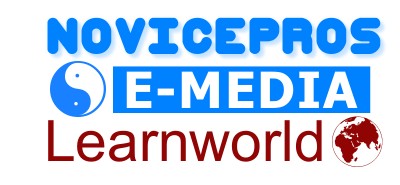Are you considering an accounting education but confused by all of the jargon? This is a guide to understanding the different specialties associated with accounting professions and the training you’ll have to be successful.
Business can’t function evaluate, and synthesize monetary productivity, and source data. In order to devote resources, accounting, or accountancy, is the tradition of measuring and collecting data. Most frequently accounting is unique to some finances. Auditing is a field where records are assessed and a conclusion reached; leading to a recommendation for actions; aimed to improve functionality and to guarantee efficiency and ensure adherence to standards and principles. A simple illustration of the workplace relationship follows: A accountant would enter and keep track of business and payroll expenses. An auditor would review the records stored from the accountant to ascertain whether time and money are being spent.
If folks think of auditors, the very first thought is one of the IRS person in a lawsuit. Although this type of auditor exists (not to be worried in case you’ve been a good record keeper) auditors are often individuals that are hired to appraise the accuracy of accounts kept by means of a business. Their investigations help management determine effectiveness and efficiency.
Accounting professionals deal with time to money ratios. In order to keep track of all of these numbers, professionals have to be well able to use computersspecifically spreadsheet applications (such as Microsoft Excel).
Accountants often specialize in 1 field. Jobs include tax accounting, bookkeeping, cost accounting, accounts payable, accounts receivable, payroll and time.
Payments that are incoming are referred to by accounts receivable.
Accounts payable identifies payments that are outgoing and debits.
Bookkeeping refers to recording calculations and transactions.
Tax bookkeeping in its simplest form denotes the specialization of preparing tax returns.
Cost accounting denotes the specialization of bookkeeping that deals with tracking, analyzing, and recording business costs. Cost might be measured in money, but also in time.
Time keeping and payroll clerks do exactly what it sounds like; that they keep track of payroll and employees timing sheets.
Coaching for accounting professions fluctuates. Though some schooling or experience is usually required for many jobs a degree in accounting is not necessary. Accounting training applications frequently involve computer classes to familiarize students with the applications utilized at work. Those in the accounting discipline must be comfortable using spreadsheets and other financial and accounting software (QuickBooks, Microsoft Excel) in addition to word processing applications such as Microsoft Word. Attention to detail is essential, as is an aptitude for numbers and sequence. A high level of trustworthiness and discretion is also essential as a lot of the information processed is confidential. Office experience and communication skills are critical at work. Certified Public Accountants (CPAs) have to experience a four-part, two-day exam administered by the American Institute of Certified Public Accountants (AICPA) and are needed to complete a minimum of 150 college credit hours (this can be 30 hours longer than the usual needed to graduate with a bachelors degree) The exam is considered to be very difficult, and many don’t pass all four sections at once. Credit is awarded provided that the candidate moves at least two segments.
As with any career, an interest in the topic matter is helpful. Someone who hates math should not look at an accounting career .
Keep in mind, it never hurts to do a little research and ask questions about programs. School representatives are happy to assist prospective students find more information about their offerings. Accounting professions are abundant and varied ; why do not alter your future?








Customer Reviews
Thanks for submitting your comment!